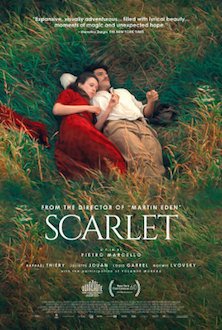Direction: Johan Renck
Country: USA
Adam Sandler takes on the role of a solitary Czech astronaut in Spaceman, tasked with a research mission to the edge of the solar system to investigate a mysterious interstellar cloud. As he spends six months isolated in his ship, he becomes increasingly anxious about the possibility of his pregnant wife, Lenka (Carey Mulligan), leaving him. Amidst this emotional turmoil, he encounters an intelligent ancestral creature—a giant space spider—that helps him confront his selfishness and grapple with feelings of loneliness, guilt, and regret.
Based on Jaroslav Kalfar's novel Spaceman of Bohemia, the film adaptation, helmed by Chernobyl’s director Johan Renck and written by Colby Day, fails to delve beyond the obvious, offering a forgettable space journey masquerading as a couple’s therapy. Despite attempting to create impact with an ambiguous open ending, the film ultimately falls short, missing the mark on its potential for depth and exploration.
One of the film’s most dispiriting aspects is the mediocre character development and absence of tension. Neither shaping as a real sci-fi adventure nor grounding itself in a compelling romantic drama, Spaceman falls into a middling territory, promising more than it deliveries. Its slow narrative pace, coupled with verbose sequences that prioritize cerebral musings over genuine insight, results in a film that struggles to maintain logical coherence and foster empathy. It’s a half-interesting, half-baked illustration weighed down by a listless melancholy that sedates more than inspires.








































